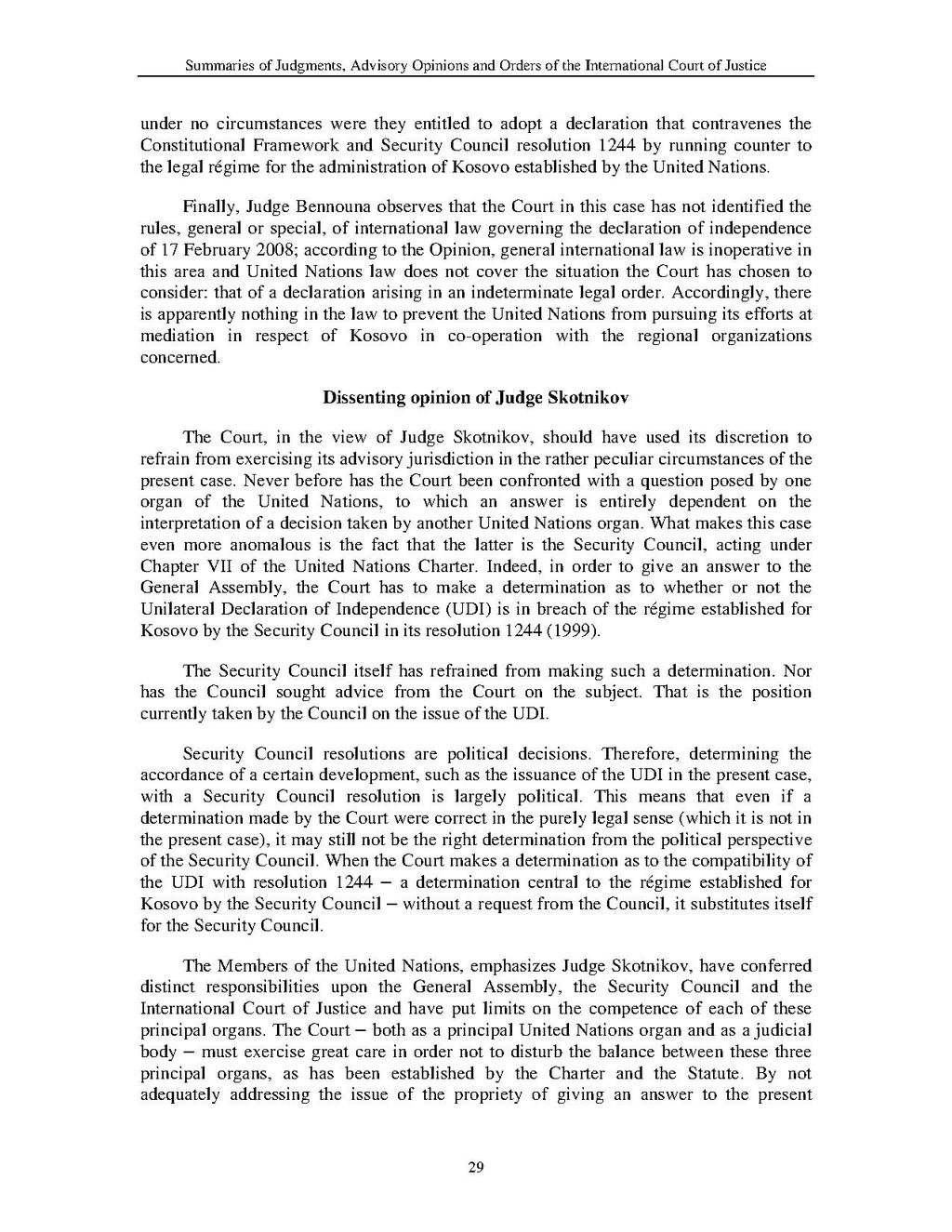Summaries of Judgments, Advisory Opinions and Orders of the International Court of Justice
under no circumstances were they entitled to adopt a declaration that contravenes the Constitutional Framework and Security Council resolution 1244 by running counter to the legal régime for the administration of Kosovo established by the United Nations.
Finally, Judge Bennouna observes that the Court in this case has not identified the rules, general or special, of international law governing the declaration of independence of 17 February 2008; according to the Opinion, general international law is inoperative in this area and United Nations law does not cover the situation the Court has chosen to consider: that of a declaration arising in an indeterminate legal order. Accordingly, there is apparently nothing in the law to prevent the United Nations from pursuing its efforts at mediation in respect of Kosovo in co-operation with the regional organizations concerned.
Dissenting opinion of Judge Skotnikov
The Court, in the view of Judge Skotnikov, should have used its discretion to refrain from exercising its advisory jurisdiction in the rather peculiar circumstances of the present case. Never before has the Court been confronted with a question posed by one organ of the United Nations, to which an answer is entirely dependent on the interpretation of a decision taken by another United Nations organ. What makes this case even more anomalous is the fact that the latter is the Security Council, acting under Chapter VII of the United Nations Charter. Indeed, in order to give an answer to the General Assembly, the Court has to make a determination as to whether or not the Unilateral Declaration of Independence (UDI) is in breach of the régime established for Kosovo by the Security Council in its resolution 1244 (1999).
The Security Council itself has refrained from making such a determination. Nor has the Council sought advice from the Court on the subject. That is the position currently taken by the Council on the issue of the UDI.
Security Council resolutions are political decisions. Therefore, determining the accordance of a certain development, such as the issuance of the UDI in the present case, with a Security Council resolution is largely political. This means that even if a determination made by the Court were correct in the purely legal sense (which it is not in the present case), it may still not be the right determination from the political perspective of the Security Council. When the Court makes a determination as to the compatibility of the UDI with resolution 1244 – a determination central to the régime established for Kosovo by the Security Council – without a request from the Council, it substitutes itself for the Security Council.
The Members of the United Nations, emphasizes Judge Skotnikov, have conferred distinct responsibilities upon the General Assembly, the Security Council and the International Court of Justice and have put limits on the competence of each of these principal organs. The Court – both as a principal United Nations organ and as a judicial body – must exercise great care in order not to disturb the balance between these three principal organs, as has been established by the Charter and the Statute. By not adequately addressing the issue of the propriety of giving an answer to the present
29
